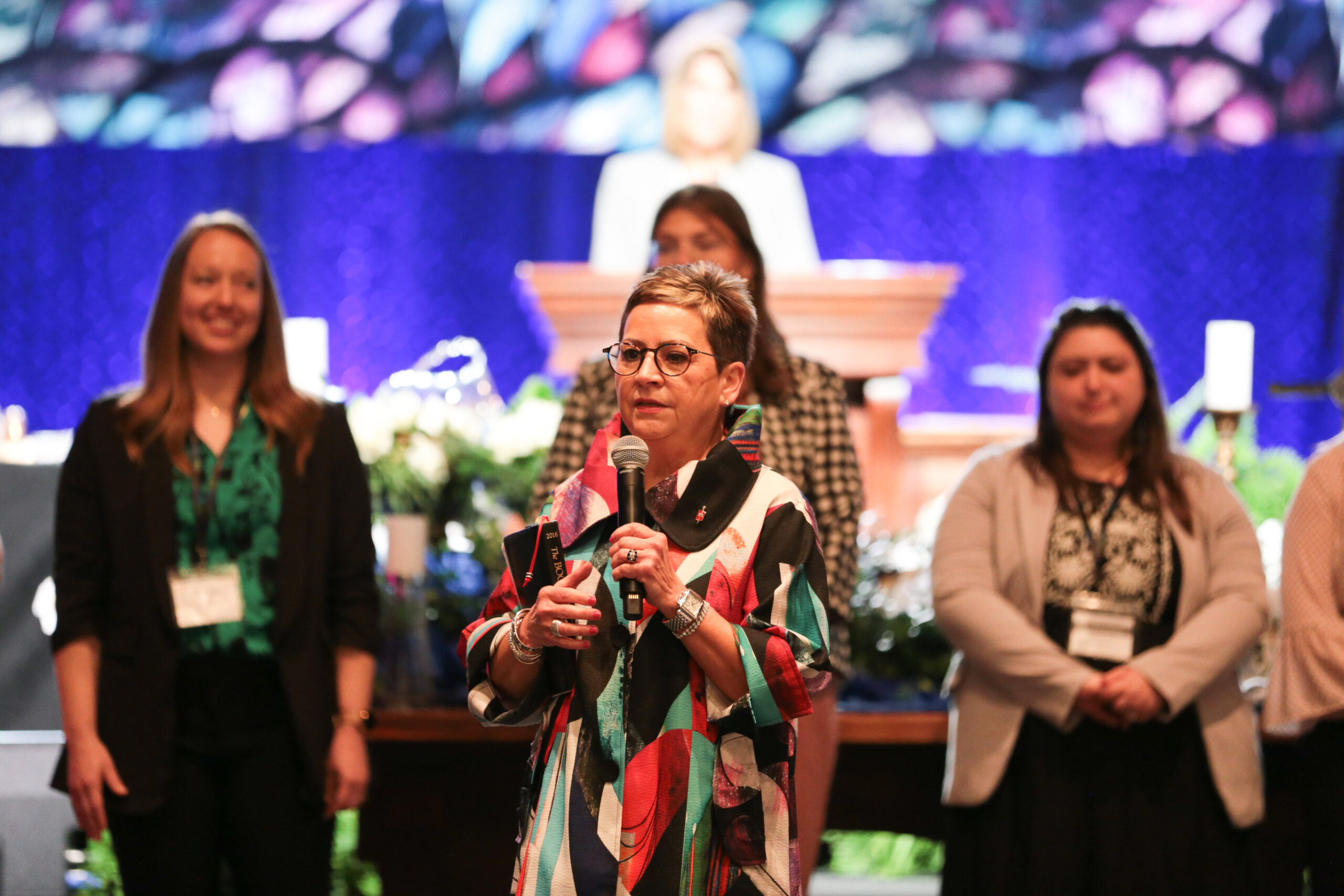
By Ronnie Crocker and Shannon W. Martin
United Methodists stand at a “precipice of possibility,” Bishop Cynthia Fierro Harvey says, the threshold between a period of wrenching change and a “kinder, gentler” future.
“You know how thresholds are,” Fierro Harvey said in an interview recapping the recently concluded 2023 gathering of the Texas Annual Conference. “You’re not quite in the next room. You haven’t quite left one room and you’re not quite in the next one. But it’s these threshold times where the greatest possibilities exist, where the greatest vulnerabilities exist. And so, we’re in this moment in time where I believe we are poised for something that’s extraordinary, that’s filled with promise and hope for the future.”
Bishop Harvey rode a whirlwind into office when she took the reins in January as bishop of the Texas Annual Conference, a regional body that sprawls from Houston and Galveston to Beaumont, Texarkana, Bryan-College Station and back up to Tyler encompassing the I-20 corridor. Once one of the nation’s largest, the conference was nearly halved in size in December of 2022 as 294 congregations disaffiliated from The United Methodist Church. Some of the 294 went independent and others joined more conservative factions. Another 20 have left so far this year.
As a result, Fierro Harvey said, “Alignment is the word of the hour.”
The bishop is upbeat about the future but realistic about the challenges ahead.
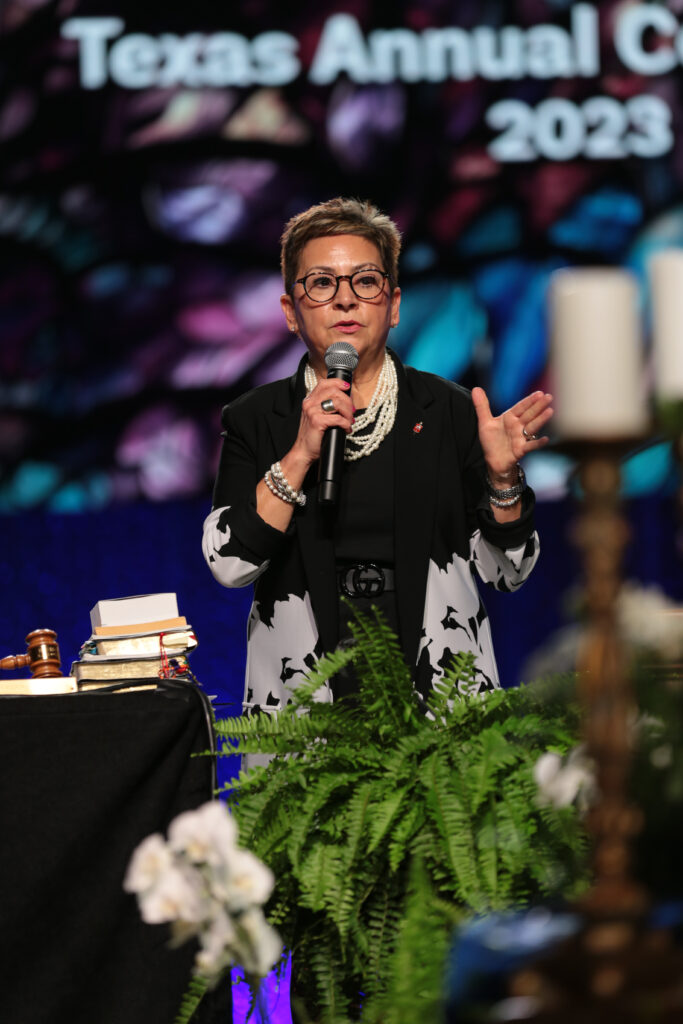
The number of districts – and District Superintendents – already has been moved from nine to five, she said, and tough choices regarding “how we will deploy resources and pastors to do the work of the conference and the work of the kingdom” remain.
Bishop Harvey acknowledged that very few congregations are still considering disaffiliating, and she noted that several new churches are arising in the wake of those that have left, led by lay persons who chose to remain United Methodist. In Jasper, for example, a group of 67 people is meeting in an Episcopal chapel; a new Cypress church is averaging more than 240 people a week.
“What I really sense is that even though our budget is not what is used to be, and the number of congregations is smaller, we are nimbler and more unified than ever before. Now, the possibilities for the future are unbelievably positive because we are more unified,” she said.
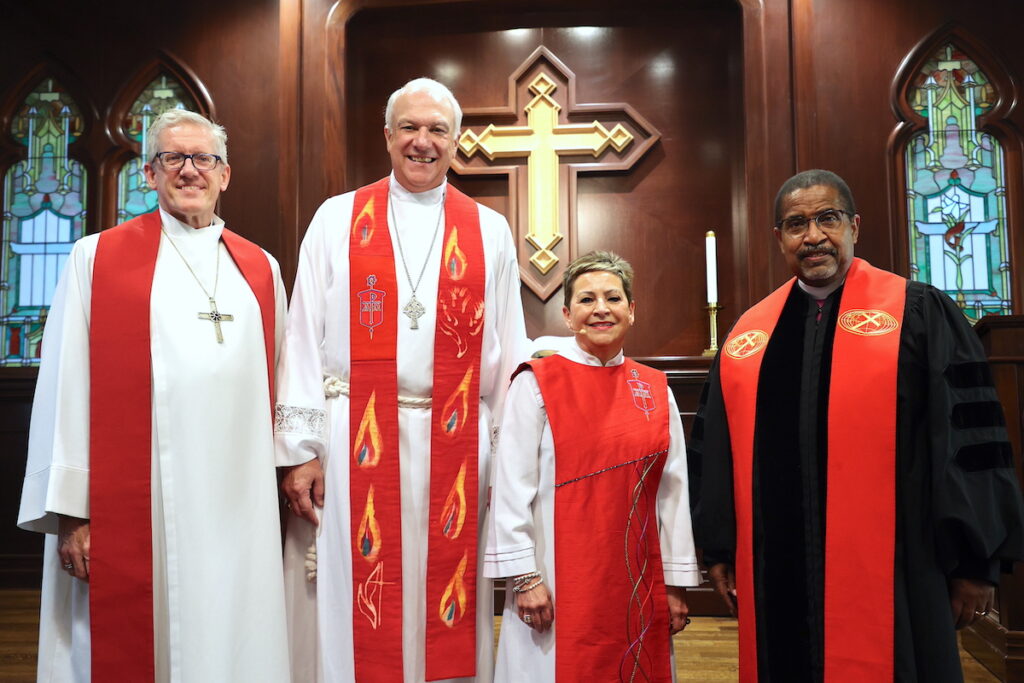
Bishop Harvey is encouraging “innovation and the experimentation” going forward.
“I want to give people permission to experiment, to do experiments,” she said. “We might fail some, we might be surprised – the sacred surprises again – at what we discover. I just think we’re at this moment where all bets are off. We can do a lot of different things. We don’t have to just do it because we’ve always done it. We could take these opportunities in these next, not just months but years, to really respond to the communities we serve. How do we remain relevant to the people? What does that look like? I want people to feel free to innovate and experiment and do things differently… because we can.”
Bishop Harvey and her husband Dean, who have been married for 42 years, are the parents of a millennial daughter. Bishop Harvey came to the ministry here in the Texas Conference after a 12-year stint in corporate public relations. She grew up in a large Hispanic family with a mother whose “love language” was food. The dinner table was a place where family and others were always welcome, a place where debate was encouraged, and all were made to feel they mattered.
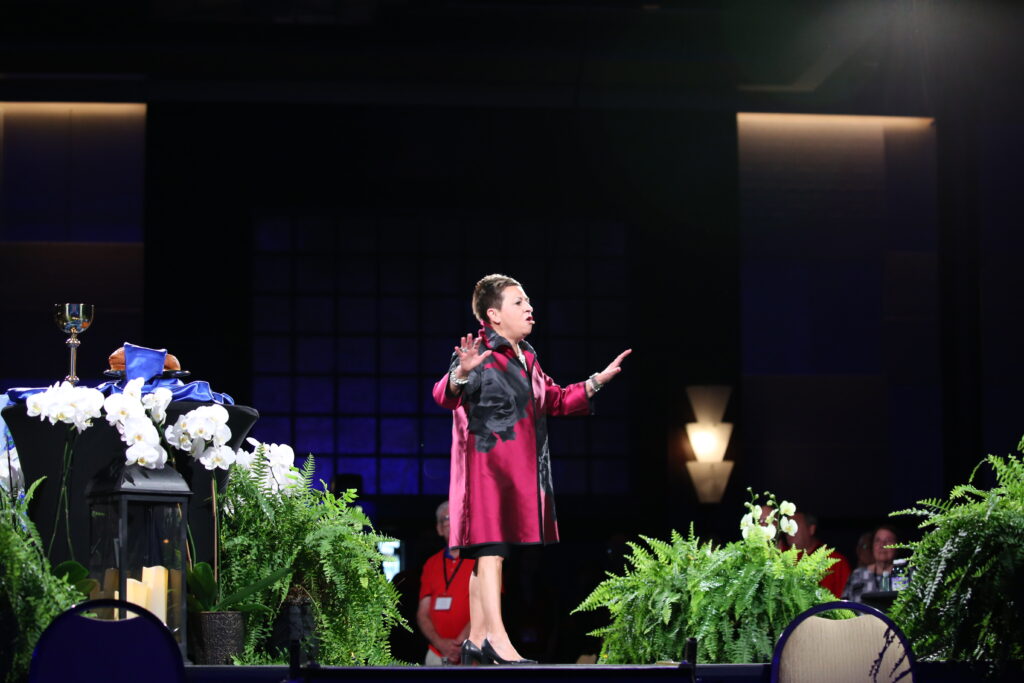
“You are more than enough. You deserve to be heard. You deserve to be seen. You deserve to have an opinion,” she said of the lessons she learned at her family table.
The metaphor drives her approach to leading the Texas Conference. Delegates this year, for example, were seated around tables filled with bread, anointing oil and grape juice rather than in stadium-like rows facing the speaker’s dais and the back of one another’s head.
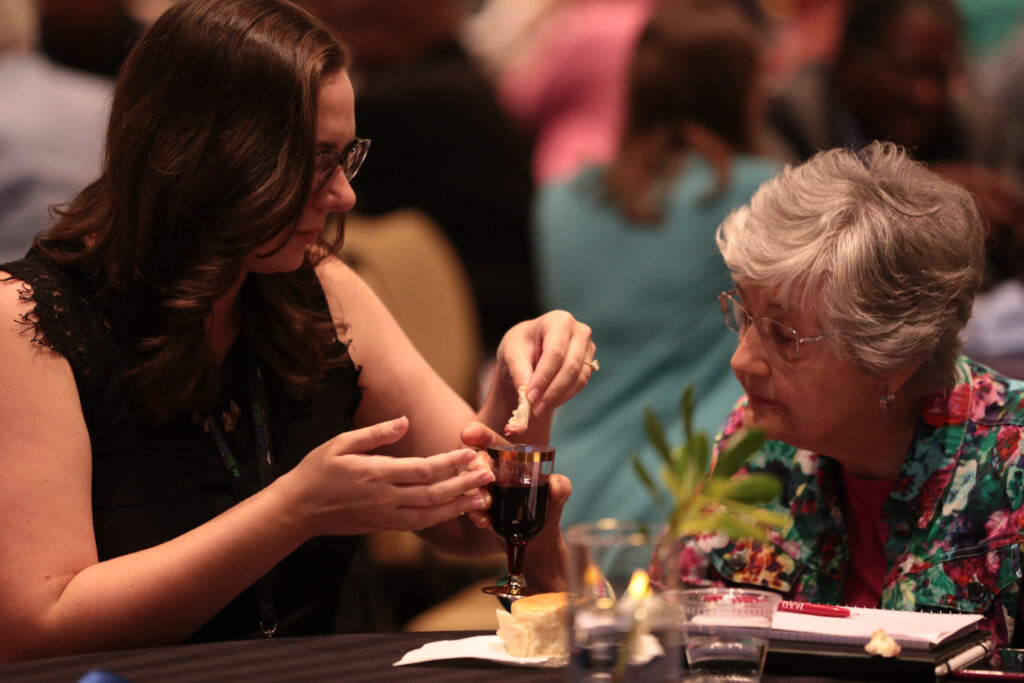
The 800 or so attendees opened up with one another. They wrote their thoughts about where and how they will be with God and one another. They noted their thoughts on paper and that will be studied by the Conference Leadership Team and used to help chart the way forward.
It was a time filled with “holy moments,” Bishop Harvey said.
“We weren’t arguing, we weren’t fighting, we weren’t trying to outdo one another,” she added. “We were actually trying to work toward something together.”
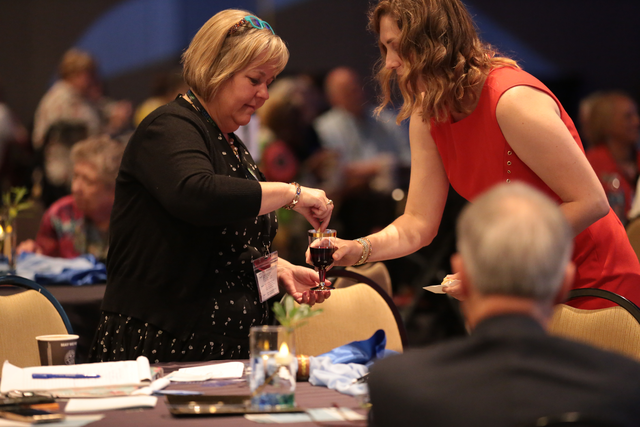
The feedback so far has been positive, she said: “That this was a gentler, kinder Annual Conference and that the Spirit was just so present. I heard that over and over and over again. Coming out of some years of grief and pain, that to be able to sit around a table and share in the sacraments and listen to one another, they felt this was a gift.”
Despite painful losses to disaffiliation, congregants “who stood their ground” and stayed may find it easier to discuss topics such as inclusion and diversity.
“I think people are more open to the conversation,” Bishop Harvey said. “While LGBTQ inclusion is important, the inclusion of all of God’s beloved community it essential. In my Episcopal Address, I spoke about inclusion. Inclusion means inclusion, it means everyone. We mean Black, white, brown, Asian, rich, poor, large church, small church, rural church, urban church. I don’t know if it’s an easier conversation, but it’s a more amenable and open conversation.”
“There’s always going to be differences of opinion,” Fierro Harvey said. “My prayer is that we would allow those differences and celebrate them. I think diversity of mind, thought, gender, is something really to be celebrated. I’m sure it will impact the church just like it will impact our entire world. But my hope is that we can be more Christian, kinder, gentler in that season.”
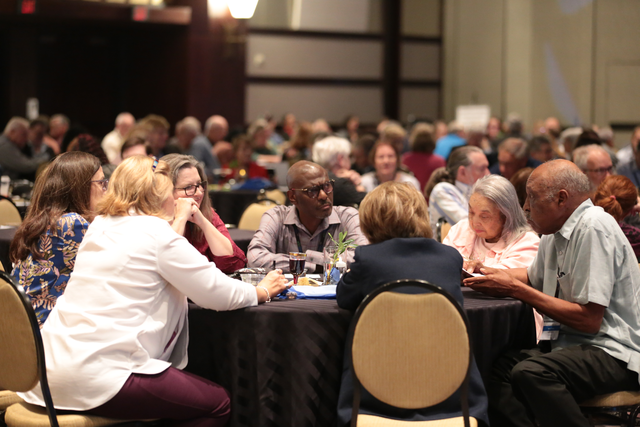
The church, she added, is ready to meet that and all other challenges.
“I get a sense that this Annual Conference is ready to do a new thing. In the words of the prophet Isaiah, ‘God is doing a new thing,’” she said. “We have to open our eyes that we may see it. We may not be able to see it yet, but we’ve got to count on the presence and power of the Holy Spirit to usher us to that point.”
Summing it up, the bishop said, “We don’t have many of these opportunities very many times in United Methodism or in the church universal. These are extraordinary moments in time that we cannot squander.”
